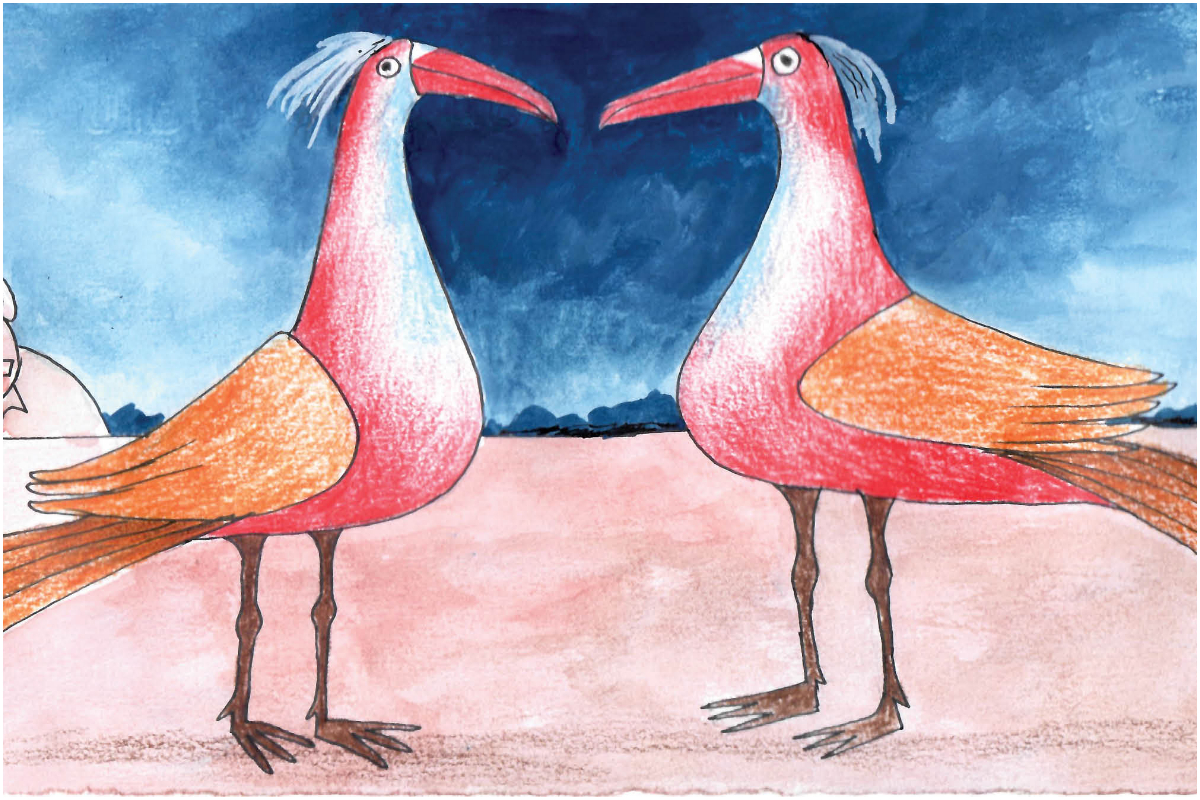
Desert distress
Villagers dislocated for foreign hunters
KARACHI: Imagine a life where one has to leave his home to pave way for foreign hunters to hunt down an endangered bird. Not only that, there is persistent fear for one’s life for mistakenly breaching the security cordon of the royal dignitaries. This is exactly what has been happening for years in the white desert or Achro Thar, spread across three districts of Sindh.
After the murder of Nazim Jokhio in November 2021, heads of forty-six families belonging to Sanghar and Khairpur districts, whose houses and lands are located in the white desert, approached advocate Hashim Leghari in Karachi seeking respite from the insult and hardship they have been facing for years.
Leghari then filed a public interest petition in Sindh High Court, narrating the ordeal of the affected families and seeking relief pro-bono public, not only for the petitioners but for the public at large.
The petition was recently taken up for hearing by a bench headed by Chief Justice Ahmed Ali M Shaikh. Leghari pleaded that it was in the knowledge of all that the Government of Sindh each year, issues permits to the Arab dignitaries for hunting hubara bustard, commonly known as Tilor. They, besides hunting their favourite bird, also hunt rare wildlife species like deer, peacock, quail and grey and black francolin due to which the species have reached the brink of extinction.
He apprised the bench that during the season of hunting under the garb of security, the petitioners and other poor villagers are forbidden to work in their fields. The security arrangements are so strict that the villagers are also forbidden to take water from the wells while the royal hunters, besides hunting permits, are also given license to cause as much damage as they wish to the standing crops cultivated on rain-fed (barani) land, as well as to kill their livestock during the hunting spree.
According to the counsel while the royal dignitaries are given the right to demolish the houses of the villagers, and to use the area as a hunting ground; the villagers are forbidden to come in the camp radius area of more than 100 kilometres. The villagers are dispossessed from their properties for about two months.
The counsel stated that recently at the instigation of the Senior Superintendents of Police (SSPs) of two districts and various station house officers (SHOs), some influential landlords of the area barged into the houses of those who refused to leave and resisted.
They severely beat the villagers and lodged criminal cases against them. But despite petitioners demonstrating against the high-handedness of the police, the Government of Sindh took no action against the police officers just to please the royal guests, ignoring the irreparable loss to the wildlife and property of people of the area.
Under such compelling circumstances, pleaded the counsel, the petitioners have no other efficacious and alternate remedy left, but to knock at the door of the court by invoking its extraordinary constitutional jurisdiction.
He prayed the court to direct the provincial chief secretary to restrain the secretary of wildlife, chief conservator of wildlife and game warden of the districts from issuing hunting permits to the Arab dignitaries, and those local hunters who are issued hunting permits be bound to only hunt those species for which these permits have been issued and the number granted under the permits.
The counsel also sought the court’s directions for the respondents, restraining them from disturbing the peaceful life of the petitioners, allowing them and other villagers to cultivate their lands to earn livelihood for their families, protect their lives, properties and livestock and also not to dispossess them from their houses and lands.
The secretary of wildlife apprised the court that though after the 18th amendment to the Constitution wildlife had become a provincial subject, the federal government continues to issue hunting permits to foreign dignitaries. The Chief Justice inquired from the secretary of wildlife as to how is it possible that the federal government issues permissions for a subject that falls under the purview of the provincial government.
When the secretary replied that the orders regarding the grant of hunting permits are issued by the federal government and the department issues permits in compliance with those orders, the Chief Justice inquired whether the federal government orders contain directions for harassing and dispossessing people from their homes and property.
The court directed the secretary to provide within four weeks complete details about the law under which the permits are issued and what conditions are imposed with the permits and deferred the matter until after the court’s winter vacations.
Catch all the Urban Insight News, Breaking News Event and Latest News Updates on The BOL News
Download The BOL News App to get the Daily News Update & Live News.












 Read the complete story text.
Read the complete story text. Listen to audio of the story.
Listen to audio of the story.